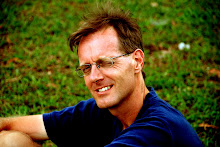Beyond Organic
The next ecological and social revolution is being plotted right now in the rainforests of South America.
Our small boat bobs along the unimaginably wide Amazon River, then heads up a fast-flowing tributary the colour of tea with cream, and finally turns onto a stream leading into the heart of the rainforest. Monkeys scamper in the trees above us as the motorboat chugs more and more slowly until the stream becomes too narrow to travel. This is where José Luiz de Oliveira and his 17-year-old son Alex live on a small farmstead alive with bird calls. Piglets frolic in the cool mud below their dock while ducks march in formation.In many ways this boat ride feels like a trip into the past. The forest is largely untouched here except for the sunny clearing around the house (although we did spot an illegal lumber operation downriver). The de Oliveiras live as people have for centuries—drawing their daily meals and livelihood from the land, the river and the livestock. It’s an enchanting place if you can get used to the mosquitoes. Yet beauty and peace do not translate into prosperity. The tiny house has no electricity, no telephone, no fans, no screens in the windows.
The great debates about sustainable development being waged in government assemblies and at environmental institutes, corporate headquarters and street protests around the world are really about this place. Is it possible to bring the de Oliveiras some of the advantages of modern life—like high school and shoes for Alex—without destroying other valuable things in the process? Valuable things like the Amazon rainforest itself, which is crucial to everyone on the planet as a source of ecological balance and potential new medicines. José invites us to sit under the thatched palm shelter at the end of their dock and we pass the time telling stories and spouting opinions. For them it’s a welcome break from working in the heat as well as an opportunity to show off baskets of freshly picked açaí, which they gathered from the tops of palm trees surrounding their home.
Açaí—a fruit slightly larger than a blueberry with a similar colour—is the reason we have come up the river. It has recently been discovered outside the rainforest as a “superfood”—a nutritious bundle of amino acids, fibre, essential fatty acids and more of the highly coveted antioxidants than either red wine or blueberries. People often report feeling a surge of energy after eating it—I certainly did when gobbling some after a long day on the river without lunch. Now that açaí (pronounced ah-sigh-EE) products are beginning to appear in health-food stores around the world, this berry offers new hope that development in the Amazon can become something more than a sad choice between environmental ruin and continuing poverty. My boat mate, Travis Baumgardner, a 31-year-old Texan who came to Rio to study environmental geography and now runs Brazilian operations for the U.S. company Sambazon, believes açaí will prove to the people of the Amazon, in cold cash, that it’s more lucrative to leave the rainforest standing than to chop it down to raise cattle or soybeans. That’s why this boat ride is more than a trip into the past—it’s a journey toward a sustainable future.
Read the full story





